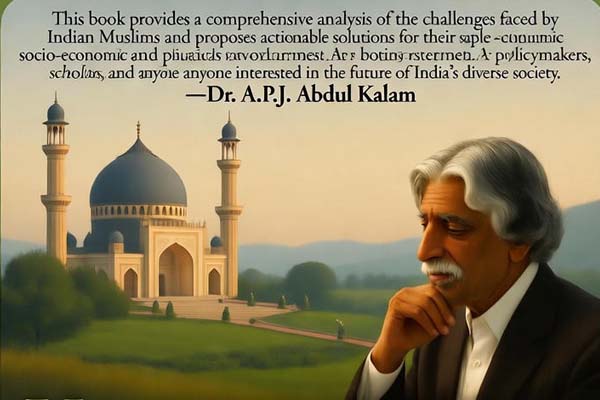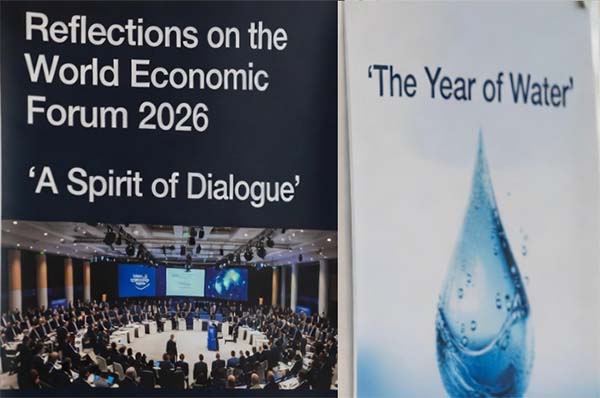 Najmuddin A Farooqi.
Najmuddin A Farooqi.
In today’s world of instant information and social media outrage, we have grown accustomed to judging and condemning people without evidence or due process. Accusations are quickly turned into convictions in the court of public opinion. Yet, in law and in justice, an accused is never a convict until proven guilty. It is essential, therefore, to extend the benefit of doubt especially when reading, listening, or reacting to even the most opposing viewpoints.
Unfortunately, many among us have developed an aversion to engaging with ideas emerging from certain political or ideological groups such as the BJP or RSS. We assume their words are filled with venom, often refusing to listen at all. The mainstream media has only deepened this divide, leaving large sections of our community disillusioned and increasingly distant from the national mainstream. This growing paranoia is unhealthy for both the present generation and those to come.
We must remember that diversity of thought is universal it has existed since the dawn of humanity and will endure until the end of time. Expecting everyone to think alike or forcing consensus on all issues is to live in a fool’s paradise. Difference of opinion, when grounded in respect and reason, does not hinder growth; it strengthens it.
However, a worrying trend has emerged within our own community. Having lost faith in the system, many now uncritically accept anything that appears to oppose it whether written by journalists, historians, activists, or artists. Truth and justice cannot have two yardsticks. Our beliefs must be based on reason, not emotion. Whether we agree or disagree with an article, a speech, or a statement, we must evaluate all by the same standards of fairness.
Even our friends and relatives, in their eagerness to comfort us, sometimes reinforce false notions or exaggerate sympathy. They may err out of ignorance, not malice. We must instead learn from wiser voices those who critique actions without hurling abuses, who present reasoned arguments rather than emotional reactions. That is the correct and dignified way to place issues in perspective.
Success will come when we as a community introspect honestly examining our attitudes, actions and the causes of our setbacks. For years, I have studied the evolution of Hindu nationalism from its early expressions in the nineteenth century, through phases of communalism and revivalism, to the present rise of overt and covert radicalism. It is surprising that the Congress Party and others who opposed this ideology failed to foresee or counter its growing influence. Though not complicit, they lacked the will to act when action was most needed.
From the Muslim perspective, it is not that awareness was entirely absent, but rather that the community at large neither realized the danger nor wished to face it until matters worsened. We have not diagnosed our problems properly; we prescribe remedies without understanding the disease. Have we become so emotionally fragile that even the harshest words against our adversaries bring us misplaced comfort or a false sense of pride?
When history is rewritten, will our current responses be remembered as strength, silence, or surrender? Only time will tell. What is certain is that we must resist provocation and exploitation whether by political parties, the media, or other forces and instead maintain critical balance and composure.
It is in everyone’s interest, not just Muslims’, that India reclaims its heritage of tolerance, equality and justice. Community leaders must make an effort to understand Hindu social psychology not selectively, but comprehensively, listening even to dissenting voices. At its core, Hindu thought is not inherently hostile to Islam; rather, it harbors fears rooted in historical experiences of cultural and religious insecurity. The modern concept of Hindutva evolved from those anxieties and gained strength through political misuse and perceived injustices.
Many Muslims misinterpret Hindutva and the motives behind certain government actions. Not every act done in its name has official sanction. Instead of reacting with fear or rejection, the community must engage with reality. The government is not inherently against Indian Muslims. The time has come to seize opportunities and strive for excellence in every sphere education, health, employment, skill development and economic growth.
True progress requires partnership with the state and the nation. Street protests over trivial issues or constant reliance on the judiciary do not bring solutions; they invite counter-polarization and further alienation. The way forward lies in constructive engagement, introspection and unity of purpose. Only then can Indian Muslims secure a dignified, prosperous and respected place in the nation’s future.



